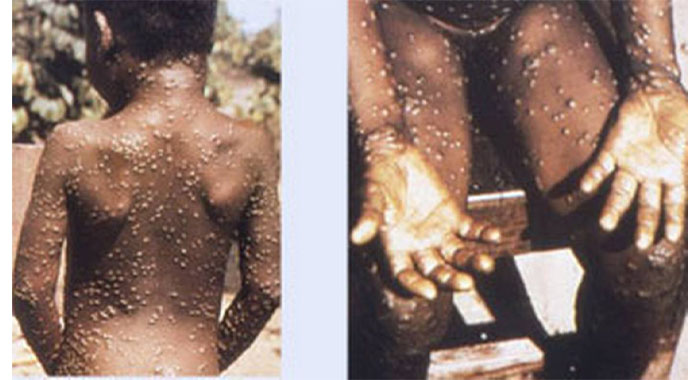
She, however, noted that all persons who were diagnosed with the disease have recovered.
Prof. Obehi noted, “Amid the rise in the number of confirmed cases of Monkeypox in Edo, it has become imperative to warn on the health risks that the virus poses and reiterate the need for residents to be cautious and adhere to safety measures.”
The Commissioner highlighted symptoms of Monkeypox to include fever, headache, weakness of the body, sore throat, and enlargement of glands under the jaw and in the neck.
“It can also come with the appearance of a rash on the face, palms, soles of the feet, genitals, and other parts of the body, which can appear solid or fluid-filled at the onset and can manifest within a period of two to three weeks following infection, depending on the health status of the individual.”
While advising on measures to contain the disease, she noted, “The virus can be transmitted from infected animals and rodents such as rats, mice, squirrels, and even monkeys; through contact with infected blood, body fluids, spots, blisters or scabs, and sharing of objects.”
The commissioner further advised: “Avoid contact with dead or live wild animals such as small mammals including rodents (rats, squirrels) and non-human primates (monkeys, apes).
“Thoroughly cook all foods containing animal meat before eating; avoid unprotected contact with infected animals, humans, their beddings, and other linen; wash hands regularly, and use sanitizer when water is not available.”
Restating the government’s commitment to containing the outbreak and protecting the health of residents, the Edo health commissioner said the State Disease Surveillance Team had been deployed to control the outbreak in the state, alongside the engagement of stakeholders across the 18 Local Government Areas of the state.
“If you suspect any symptoms of Monkeypox, kindly visit the nearest health facility for medical attention or call the acting State Disease Surveillance and Notification Officer (0806 059 3802),” Prof Akoria advised.












